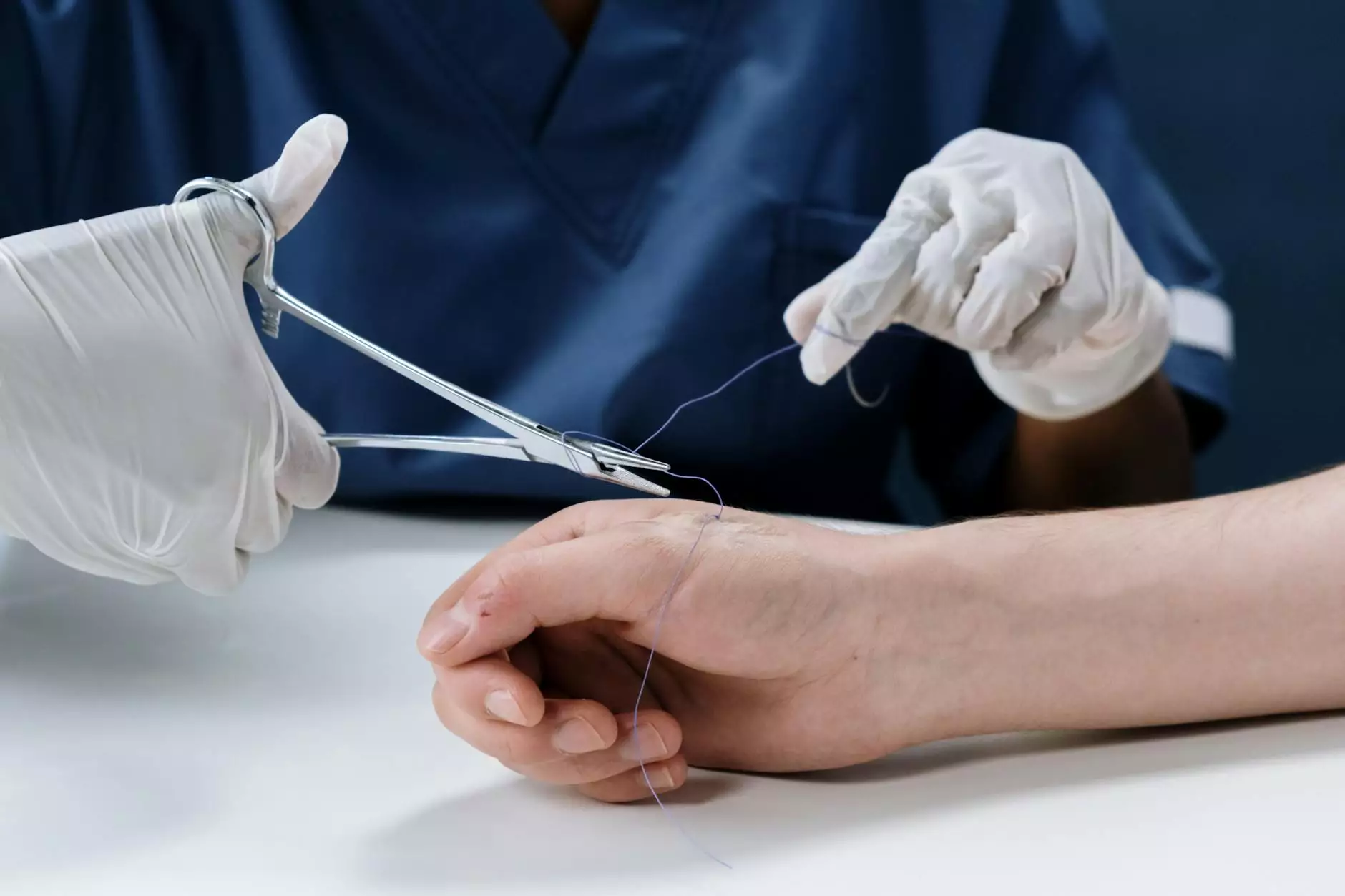Understanding the Role of a Thoracic Surgeon

The field of surgery encompasses a variety of specializations, each catering to different aspects of human health. Among these, thoracic surgery is a critical specialty that focuses on surgeries involving organs within the thoracic cavity, such as the heart, lungs, and esophagus. In this article, we will delve into the pivotal role of thoracic surgeons, exploring their training, procedures, and the impact they have on patient outcomes.
The Importance of Thoracic Surgery
Thoracic surgery plays a significant role in treating various conditions that affect the chest area. A thoracic surgeon specializes in a range of medical issues, which is fundamental for the overall functioning of the human body. Here are some critical areas where their expertise is vital:
- Pulmonary Diseases: Conditions affecting the lungs such as lung cancer, emphysema, or chronic obstructive pulmonary disease (COPD).
- Cardiac Conditions: Surgeries involving the heart, such as coronary bypass grafting or valve repair/replacement.
- Esophageal Disorders: Surgery for diseases affecting the esophagus, including gastroesophageal reflux disease (GERD) or esophageal cancer.
- Trauma Management: Treatment of thoracic injuries resulting from accidents or other traumatic events.
Training and Qualification of a Thoracic Surgeon
Becoming a thoracic surgeon requires an extensive educational background and rigorous training. The pathway typically includes:
- Undergraduate Education: A bachelor's degree focusing on the sciences is essential.
- Medical School: Completion of a medical degree (MD or DO) which usually takes four years.
- Residency Training: A general surgical residency program lasting about five years.
- Fellowship Training: Specialized training in thoracic surgery for an additional 2-3 years, focusing exclusively on thoracic procedures.
Common Procedures Performed by Thoracic Surgeons
Thoracic surgeons perform a variety of procedures aimed at treating thoracic conditions. Below are some common interventions:
Minimally Invasive Techniques
Advancements in medical technology have led to the increased use of minimally invasive surgery (MIS) techniques, including:
- Video-Assisted Thoracoscopic Surgery (VATS): A key technique for lung biopsies, resections, and treatment of pleural diseases.
- Robotic-Assisted Surgery: This involves the use of robotic systems that enhance precision in complex procedures.
Open Thoracic Surgery
In some cases, traditional open surgery remains necessary. Common procedures include:
- Lobectomy: Removal of a lobe of the lung affected by cancer or severe infection.
- Pneumonectomy: Complete removal of a lung due to extensive disease.
- Cardiac Surgery: Surgeries such as coronary artery bypass grafting (CABG) are fundamental for patients with heart disease.
The Intersection of Thoracic Surgery with Sports Medicine
For athletes, thoracic surgery can be pivotal, especially when dealing with injuries that affect the thorax. Conditions like pulmonary contusions or rib fractures demand the expertise of a thoracic surgeon. In sports medicine, it is essential for athletes to receive comprehensive care, and here is how thoracic surgeons contribute:
- Injury Assessment: Evaluating the extent of injuries related to sports and other physical activities.
- Rehabilitative Support: Collaborating with physical therapists to create a solid recovery plan.
Post-Operative Care and Rehabilitation
The journey of a patient does not end with surgery. Post-operative care is crucial, and a thoracic surgeon often works closely with a team of healthcare professionals, including physical therapists and medical doctors, to ensure optimal recovery. Key aspects include:
- Pain Management: Addressing discomfort post-surgery through medication and alternative therapies.
- Rehabilitation Programs: Tailored physical therapy to restore function, strength, and endurance.
- Regular Follow-Ups: Monitoring recovery and addressing any complications or concerns.
Advancements in Thoracic Surgery
Continual advancements in medical technology enhance the capabilities of thoracic surgeons. Some of these innovations include:
- Enhanced Imaging Techniques: MRI and CT scans contribute to precise pre-operative planning.
- Biomaterials: Used in surgical repair of tissues to improve healing and reduce complications.
- Telemedicine: Allows for remote consultations and monitoring, expanding access to care.
Patient Experiences and Outcomes
The success of thoracic surgery is often determined by patient experiences and outcomes. Studies show that patients with access to skilled thoracic surgeons exhibit improved recovery rates and overall satisfaction with their care. Factors influencing these experiences include:
- Surgeon's Expertise: A well-trained surgeon with vast experience enhances success rates.
- Supportive Care Teams: Integration with teams from physical therapy, nursing, and nutrition promotes holistic recovery.
The Future of Thoracic Surgery
As the field continues to evolve, the future of thoracic surgery promises exciting innovations. Continuous research and development are expected to enhance surgical techniques, improve patient safety, and expedite recovery processes.
Emerging Technologies
Key areas of advancement include:
- Artificial Intelligence (AI): Leveraging AI for diagnostic support and surgical planning.
- Wearable Technology: Gaining insights into patient vitals in real-time post-surgery.
Conclusion
In conclusion, the role of a thoracic surgeon is indispensable in the management of thoracic diseases. Through their specialized training and dedication to patient care, they not only treat critical health conditions but also contribute to the overall well-being of their patients. As we move forward, the advancements in this field will continue to foster improved surgical outcomes, helping individuals lead healthier lives. For those seeking expertise in thoracic surgery, it is paramount to connect with skilled professionals who are committed to excellence in this vital area of healthcare.









